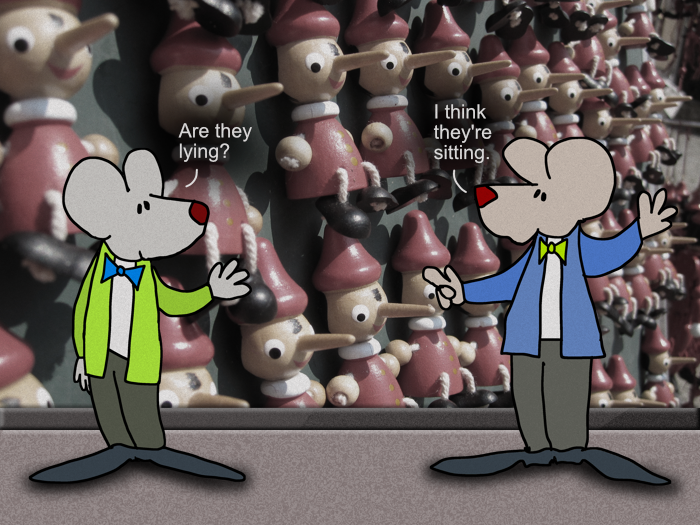Liar, liar. Pants on fire.
Or.
If you keep lying like that, your nose is going to grow.
Just like Pinocchio.
It has become one of Disney’s top films of all time. A classic. And it just so happens that it was released on this date, February 23, 1940.
It is a dark, dark tale if you ask me. What with all the lying and deception. And the puppet running away from his father, the puppeteer. There’s the cricket dude. And the whole getting swallowed by the shark.
I haven’t seen the movie in years, but ever since then, I’ve been wishing upon a star.
The Disney project was in the making for quite a few years. You can tell by the animation that it had advanced compared to the other prior Disney movies. The process took several hundred artists. According to a film historian, “there was somewhere in the neighborhood of seven or eight hundred artists altogether at the studio at that time.”
Here is one interesting thing about the movie. The scene in Gepetto’s workshop features lots of clocks hanging on the wall. Well, Walt Disney would come in to review the animations, and then he’d tell the artists, “Oh, that clock would never work.” So the animation team started building actual clocks that looked like their drawings to prove they would work. Working models. Cuckoo. Cuckoo.
Anyway, it seems that when we consider Pinocchio, we immediately associate it with lying.
The lie. The fib. The ruse.
And the truth is. We all lie. Even if we are incredibly honest people. We’ve told a good one in our lifetimes. Besides, there are little white lies we don’t even notice ourselves saying every day.
Like this. How many times has someone asked you how you are doing, and you typically answer with “Good!” — even though you may not be good at all?
People lie for a lot of different reasons. And we do this at varying levels of effectiveness. Many times, lying is not always done for ill-natured purposes.
In fact, people often lie to protect themselves and others.
And scientists say that lying is a complicated procedure when you talk about it on a psychological level.
Here are some things about lying.
According to U.S. News, people lie way more in writing than face-to-face. It has been found that we lie most in e-mails. We are also prone to do it in chats or text messages. We are the least likely to lie in person. When we write our lies, we don’t have to worry about mannerisms. It feels less personal.
I’m not lying.
Here’s another thing. Out of the twelve months, January is the month when we all lie the most. Research has found that Americans tell an average of seven lies per day in January, compared to the usual average of a measly four in other months. Many times people fib about post-holiday diets, vacation details, and how the holidays went.
Not only that but men and women lie for different reasons. Men tend to lie to make themselves look better. And women? They mostly lie to make someone else feel better. Or to make them feel more comfortable in a conversation. “Jolene, I love your dress.”
Mostly though, we are terrible at detecting lies. Researchers found that the average person can only detect lies about 50% of the time. Flip the coin. Are they lying or telling the truth?
So thanks, wooden boy with the nose and the lies.
Because when it comes to lying, now we knows.
======
“Anything is better than lies and deceit!”
― Leo Tolstoy, Anna Karenina
=====
“For every good reason there is to lie, there is a better reason to tell the truth.”
— Bo Bennett
=====
“A conscience is that still small voice that people won’t listen to.”
― Carlo Collodi, Pinocchio
=====
Tell a lie and looky at your nose grow.
